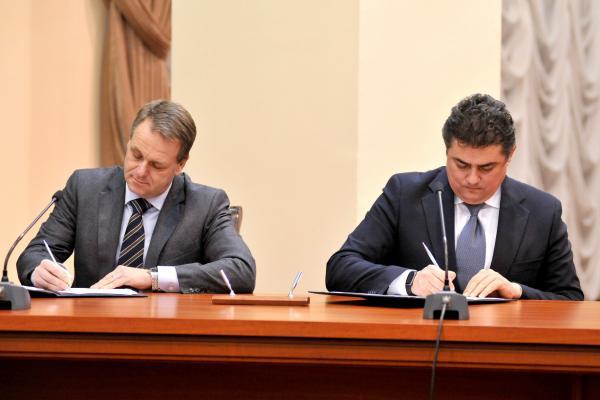
In a joint effort to strengthen Moldova’s energy security, the European Union, the European Investment Bank (EIB) and the European Bank for Reconstruction and Development (EBRD) are providing a €92 million financing package for the construction of a natural gas pipeline from Romania to Chisinau.
The EIB and the EBRD are each lending €41 million and the EU is providing a €10 million grant. The funds will be extended to Î.S. Vestmoldtransgaz, a state-owned company which will build and operate the gas pipeline and the Romania-Moldova interconnector.
The project will complete the connection of the gas transmission systems of Romania and the Republic of Moldova by linking Chisinau, a major area of gas consumption in the country, to the interconnector between the eastern Romanian city of Iasi and Ungheni, a Moldovan town on the Romanian border. It was built in 2014 to enable Moldova – a country which is more than 90 per cent dependent on energy imports – to diversify its energy sources. The EU provided a €7 million grant for the interconnector.
As part of the new financing package, the Moldovan government has agreed to implement a comprehensive reform package to promote the liberalisation of the energy market and strengthen competition in the sector.
EU Ambassador to the Republic of Moldova Pirkka Tapiola mentioned: "I am delighted that the EU, together with its Bank and our EBRD partners are contributing to the construction of the Ungheni-Chisinau pipeline. The EU fully supports this project which is of strategic interest to the Republic of Moldova. It will reinforce the energy security of the country and contribute to increasing the competitiveness of Moldovan energy market to the benefit of all citizens."
EIB Vice-President Jan Vapaavuori, commented: “I welcome very much that the EIB contributes to the diversification of the energy resources for the Republic of Moldova, a country dependent on energy imports. This will help to increase the energy security and support both the liberalization of the gas market in the country as well as its integration in the European energy system. At the same time this project is a good example of a successful cooperation between the EIB, our partner financing institution EBRD and the European Union that are co-financing this strategic undertaking”.
Dimitri Gvindadze, head of the EBRD’s office in Chisinau, added: “The pipeline will enable Moldova to buy gas from EU markets and will promote measures that will help foreign gas suppliers enter the Moldovan market. This will allow the country to diversify its energy supplies and will strengthen competition in the sector.”
Additional support comes from the Swedish International Development Cooperation Agency which has provided nearly €600,000 for a comprehensive feasibility study conducted by the engineering consultancy Fichtner GmbH to assess technical, market, regulatory, economic and environmental and social aspects of the project.
The EBRD is also providing €1 million grant financing from its own funds to support the implementation of the project, including legal and regulatory assistance.

Photographer: EIB ©To be defined
Download original

Photographer: EIB ©To be defined
Download original

Photographer: EIB ©To be defined
Download original

Photographer: EIB ©To be defined
Download original